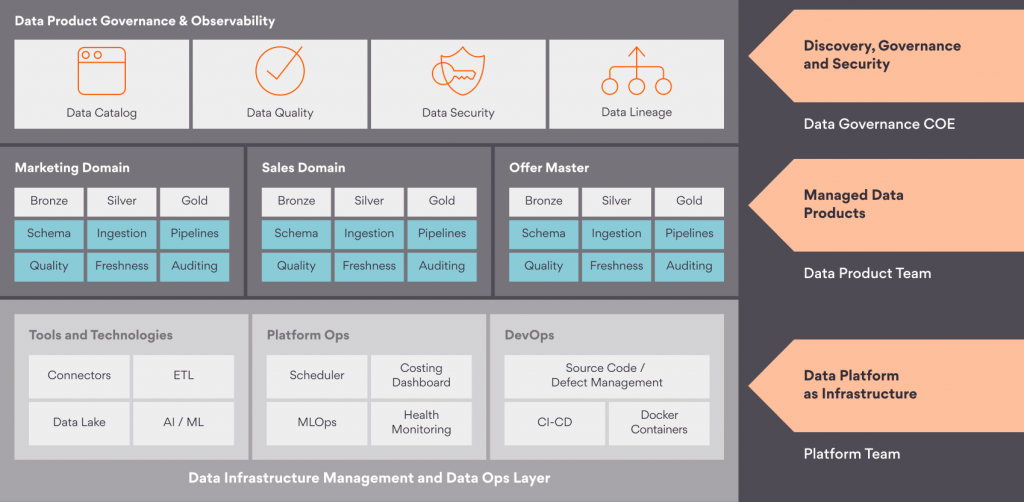The data world is evolving at a rapid pace and organizations have critical strategic decisions to make in their journey towards becoming data driven. A recent survey across leading organizations states that nearly 92% organizations are accelerating their investments in Big Data & AI, with nearly 96% organizations already using AI in some form or the other. So far so good. But dig down deeper and an astonishing fact is revealed. Nearly 92% C-suite executives believe that the principal challenge to becoming data-driven is organization culture and not technology. People and process aspects need more focus than technology.
This should be an eye opener for most organizations. Many of today’s enterprises already have some form of Data Warehouse or Data Lake initiatives running and, in most cases, they are already on cloud. But organizations need to go further and ask themselves if they have built the culture that is necessary to become a data driven organization. Organizations struggle to maximize business benefits from their data & analytics initiatives as they face several practical challenges.
- IT infrastructure owned by centralized team necessitating bureaucratic approval process
- Siloed data teams lacking access to centralized data resources
- Missing organization wide Data Stewardship and Data Quality
To truly become data driven, organizations need to undergo a transformation. There are 3 fundamental changes needed for organizations to move into a data driven culture.
This approach is heavily influenced by Data Mesh Architecture.

Managed Data Products:
This is the central theme of Enterprise Data as a Service. This approach necessitates focusing on “Data Product Thinking” and then on the underlying tools.- Each logical grouping of data per subject area or business group is a “Data Product”
- Focus is on maintaining (ingest, curate, distribute) domain datasets
- There is a clear data product owner identified with each data product, which facilitates trust on data
- This allows decentralized & distributed data ownership
- Each data product not only contains domain datasets, but also all the data processing components (ingestion, ETL/ELT Jobs, data quality jobs, ML pipelines) and data servicing components (raw Storage, data lake/ DWH / data queues, data APIs, model registry, feature store)
Check the webinar on how to Maximize the power of data with Enterprise data-as-a-service model
Data Governance & Data Product Observability:
This is a common framework of open standards; best practices built collectively by representation from all Data product teams. Governance & Observability will generally have following components.- Data Catalog – Ability to discover datasets shared by Data Product Teams. Ability to standardize Data Share policies by Data product teams
- Data Quality – An automated & AI-ML based Data quality framework to ensure measuring & monitoring of Data Quality at each stage
- Data Security – A reliable, consistent mechanism of allowing & controlling data access for sensitive data from compliance standpoint
- Data Lineage – A predictable traceability of ownership of data origin, transformation & distribution.
Data Infrastructure as a Self-service :
A Data infrastructure that is SLA driven, scalable & self-serviced. It means- Domain agnostic shared infrastructure
- One business group can own or represent one Data product
- Independent scaling for each business group
- Ease of access to manage all NFRS (CI/CD, Quality, Health & Monitoring, Security & Governance)
- The success criteria for this platform team are – “Reduce lead time to create new secure & discoverable data products”.
The Enterprise Data as a Service approach enables incremental changes to the organization culture & processes. This ensures a gradual organizational transformation over a period of 3 to 6 months. Such a transformation fundamentally changes how data gets used in decision making. This ensures that instead of technology, “Data Stewardship” becomes the central pillar driving people, process, and culture transformation.
The journey towards becoming data driven is a continuous one and not a one-time event. But Enterprise Data as a Service approach helps accelerate this journey and builds future proof data driven organizations.






